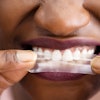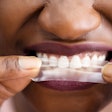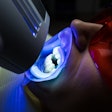Existing headgear and mouthguards have limited or no benefit in reducing concussions in rugby players, according to a new study (Neurosurgery, November 2010, Vol. 67:5, pp. 1404-1418).
Lead author Michael Cusimano, MD, PhD, from the division of neurosurgery at St. Michael's Hospital in Toronto, and colleagues assessed the quality and content of studies that evaluated injury prevention strategies for rugby players and reported on neurological outcomes.
In their review, they included 10 articles, with two of these assessing both headgear and mouthguards. Four studies reported insignificant reductions in neurological injury with the use of headgear. The results of four studies on the effectiveness of mouthguards in preventing neurological injury were inconclusive.
"There is limited evidence to support the effectiveness of mouthguards and headgear in reducing neurological injuries," the authors of the current study concluded.
Dr. Cusimano still recommends rugby players wear mouthguards and protective headgear because of the strong evidence they reduce mouth and face injuries and scalp lacerations and abrasions.
Educational injury prevention programs that promote proper playing techniques and enforcement of the rules do result in a significant reduction in concussions and head, neck, and spinal injuries, Dr. Cusimano and colleagues noted in the study.
"A large number of players, coaches, and referees believe that equipment such as mouthguards and headgears may prevent brain injuries in rugby," Dr. Cusimano said. "Our study was the first to summarize what did and what did not work. Equipment such as headgear and mouthguards are ineffective at preventing neurological injuries, but other strategies, such as education and rule changes, have been shown to be effective."
Copyright © 2010 DrBicuspid.com



















